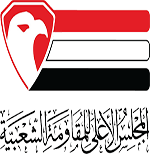The Supreme Council of the Popular Resistance launches the popular oversight phase
2025-08-03_1200x800.jpeg)
The Supreme Council of the Popular Resistance launches the popular oversight phase by forming a committee to oversee the performance of executive offices.
Taiz: Special
In light of the ongoing stifling water crisis that is burdening the residents of Taiz, the deterioration of public services across various sectors, the glaring absence of oversight and transparency in Taiz, the weak performance of service institutions, and the accompanying suffering that burdens citizens, and within the framework of a sense of national responsibility towards the Yemeni people in general and the people of Taiz in particular, there is an urgent need for a popular and societal movement that pressures for the provision of services and improvement of conditions, and strengthens the role of popular oversight in correcting service delivery.
From this perspective, and under the guidance of the leadership of the Supreme Council of the Popular Resistance, a "Specialized Services Department" was formed to contribute to the development and improvement of service provision in the liberated areas. An expanded "Popular Oversight Committee" emerged from this committee, tasked with overseeing and correcting the course of government executive offices. This is part of the Supreme Council's efforts to find practical solutions and push for improved government performance.
Since its establishment and inauguration, the committee has conducted a series of field visits and meetings with relevant authorities. It has identified a number of issues facing the city, most notably the water crisis and the resulting severe suffering that has sparked widespread panic among citizens.
In this context, the committee met with the Director of the Water Corporation, Engineer Wathiq Al-Aghbari, and the Deputy Governor for Services Affairs, Engineer Rashad Al-Akhaly. It also visited a number of officials from agencies involved in the water sector, met with stakeholders and geological experts, and visited numerous water wells within the city and in Al-Dhabab. The committee concluded with a broad understanding of the water crisis, its causes, and possible solutions to mitigate its severity. The committee calls on everyone to engage constructively and work in a spirit of collective cooperation to help our governorate emerge from its recurring crises and overcome all the problems caused and continue to be caused by the hateful Houthi coup and its repercussions.
The committee emphasized that its role will not be limited to supervision, oversight, and monitoring, but will extend in the coming days to include pressure and other measures to correct deficiencies in various service sectors, most notably the water sector. This will ensure active public oversight, improve the overall efficiency of institutional performance, and enhance the state's presence.
This step comes within the context of efforts to restore consideration for the priorities of the popular base, meet their needs, and contribute to alleviating their suffering, especially in light of the Houthi siege and difficult humanitarian conditions that Taiz has been experiencing for ten years.
.jpeg)
.jpeg)
.jpeg)
